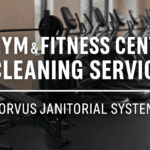Tax season is upon us, and even if we’ve been filing this time each year for over a decade (or several), most of us still get a bit anxious when the time comes. If you’re a new small business owner, you might be feeling particularly worried about the unique challenges that tax filing in a new category might bring. Feeling more prepared can help ease these worries.
All small business owners want to ensure that they’re filing their taxes the right way, and save as much money as they can in the process. Luckily, there are several small business tax deductions that help you make the most of the filing process and save where you can. As the tax deadline creeps up on us, now is the best time to start getting organized. But if that sounds daunting, don’t worry, we’ve done a lot of the research for you already:
Changes to Credits and Deductions for 2022 Taxes
Some tax credits and deductions that will expire or decrease in 2022 are:
-Section 179, which allows businesses to deduct 100% of qualified expenses for certain fixed assets purchased in 2022. This figure will decrease to 80% in 2023.
-The Expanded Child and Dependent Care Tax Credit, which has decreased from an $8,000 maximum in 2021 to $2,100 in 2022. Income thresholds and percentage of child care expenses deductible have also decreased.
-Qualifying business meals, which were instituted during the pandemic to encourage support of restaurants and make it easier for employers to provide catered meals. This deduction may not be extended beyond the January 1, 2023 deadline.
-Mortgage insurance premiums will no longer be treated as deductible mortgage interest starting in 2023. This may affect businesses with property or brick-and-mortar locations.
List of Small Business Tax Deductions to Consider
With the numerous changes to tax rules over the last few years, there are many other small business tax deductions that you might not yet be aware of. These include:
-Vehicle expenses
-Dedicated home office space
-Capital equipment depreciation
-Professional services
-Salaries and wages paid to full and part-time employees, as well as bonuses, meals, lodging, and certain employer-paid taxes
-Work Opportunity Tax Credit (if you hired any military veterans or other long-term unemployed workers before the first of this year)
-Business supplies and office expenses
-Meals and entertainment for clients and employees
-Labor for independent contractors or freelancers
-Equipment and furniture
-Employee benefits (health plans, life insurance, education reimbursement, pensions, etc.)
-Relevant business software (POS and other computer systems)
-Rent for your business’s physical space
-Start-up costs and expenses (hiring costs, legal entity fees, etc.)
-Utilities (electricity, phones, Wi-Fi, etc.)
-Certain taxes
-Commission payments
-Rental equipment or machinery
-The interest paid on business lines of credit
-Bad business debts
-Mortgage interest
-Bank charges
-Disaster and theft losses
-Small business tax deductions that carried over from previous years
-Business insurance
-Renovations and insurance-related strictly to your home office space
-Business tools
-Unfulfilled invoices
-Education
-Marketing and advertising costs
-Charitable deductions
-Cleaning, janitorial, and PPE expenses
-Licenses, trademarks, and other intellectual property
Small Business Tax Deductions Explained
Some of these tax deductions are straightforward, like vehicle expenses, including gas, maintenance, parking, and tolls for business-related travel. But others may be a bit more ambiguous if you’re not familiar with their definitions or limitations. So, let’s talk about the ones whose meanings aren’t immediately obvious. Home office deductions are an area that tends to cause some confusion. You can deduct a portion of your rent or mortgage, utilities, insurance, and other costs for the square footage of your home that is used as an office.
But the thing to remember here is that it has to be a strict home office space. It can’t be a spare room that you occasionally escape to with your laptop if your loved ones or roommates are being noisy in other areas. Your home office can’t be dual purpose, it must strictly be a home office space. Your tax software or a tax professional can help you decide between calculating the costs to write off or taking the standard deduction based on square footage.
Speaking of consulting a tax professional, professional services like this one are another potential deduction. You can also deduct fees for accountants, attorneys, or business consultants. The same goes for freelancers or independent contractors that you bring in to help with marketing or extra help during busy months. Client and employee entertainment is a deduction that often gets missed. If you take a potential client out for lunch, you can typically deduct up to 50% of the cost, as long as at least one employee is there and it isn’t a particularly lavish experience. You can deduct snacks and meals that you provide in the office, too.
Deducting taxes can get a bit tricky because the deduction you qualify for depends on the tax type. For example, you may be able to deduct license taxes, taxes on real estate your business owns, sales taxes on purchases made for your business, or a portion of your payroll taxes. For this one, the deductions can vary depending on several different factors, including state and business type, so it may be best to talk to a professional here, too.
Similar to the last one, some of your insurance premiums may be tax-deductible. These are strictly business-based premiums for coverage in different areas, like property, liability, casualty, employee theft, and business-owned vehicles. Lastly, let’s talk about bad business debts. These include money advanced for goods or services that were never fulfilled. Depending on the circumstances, you may be able to deduct the costs. One example of this might be advancing money to an employee or vendor and then having them disappear without fulfilling their end of the bargain.
The Wrap Up
There are many benefits to being a small business owner. But like all things worthwhile in life, there are times when it’ll require more effort than we’re used to. Filing our taxes this year is one of those times. If you feel confident handling your tax filing on your own this year, several reputable tax services, including H&R Block, offer specialized online filing services for the self-employed and small business owners.
Because they require more work, you should expect to pay more to file. But the number of deductions that they’ll help you sift through will make it worth the extra upfront cost. If you want to be extra thorough to ensure that every possible tax benefit is explored or you simply have a lot of questions you’d like answered, hiring a tax professional you can meet with in person may be the better way to go this time.
If you haven’t been already, keeping detailed records of your expenses and other information related to your taxes and tax benefits can help you feel better prepared next time. Keep receipts, write down business-related items, training, or travel expenses, and store it all somewhere safe. If you haven’t already, investing in some small business software like QuickBooks’ accounting, bill-pay, record keeping, and payroll software might help you get more organized. And depending on the software and what you’re using it for, you might be able to deduct that cost, too.













